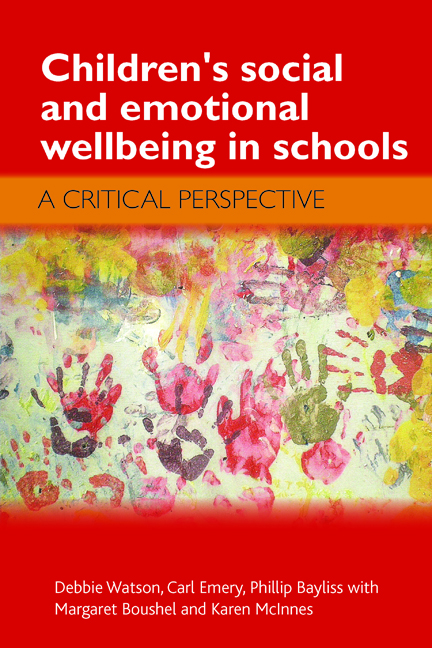Chapter 7 - Accessing minority voices – implications for wellbeing
Published online by Cambridge University Press: 01 September 2022
Summary
Introduction
In this chapter, we explore a number of attempts in the literature to access children's voices concerning their wellbeing. This review includes approaches with very young and disabled children, as well as child-focused research in development studies. We hope that a focus on the most marginalised groups of children and young people will highlight the methodological and conceptual barriers present in wellbeing research with all children. It is worth noting that there are very few empirical studies that specifically focus on children's social and emotional wellbeing, so some of the studies discussed have a more general focus on children's voices in research.
The specific focus of the chapter is to consider if children's voices can be regarded as generally ‘minoritarian’ (Deleuze and Guattari, 2004), and then explore what methods are appropriate to bring these to visibility (Foucault, 1983a) in order to understand their wellbeing experiences. As such, this raises questions of authenticity, representation and power and the importance of understanding the multilayered, embedded and contextual nature of children's wellbeing.
The right to be heard?
The United Nations Convention on the Rights of the Child (UNCRC), developed internationally, was ratified by the United Kingdom in 1991 and includes all UN countries with the exception of the USA, Somalia and East Timor. It contains 54 rights for the world's children, which included an Article specifically relating to the right to be heard (UN, 1990, Article 12); while another reflected the right of the child to freedom of expression: ‘either orally, in writing or in print, in the form of art, or through any other media of the child's choice’ (UN, 1990, Article 13).
The arguments linking ‘listening’ and ‘rights’ are pervasive and persuasive as they support liberal views of children as competent social actors who have the right to talk about things important in their lives. As has been noted: ‘the subject is constructed as a rational autonomous individual, with the consciousness to formulate his or her own wishes’ (Kjorholt et al, 2005, p 175). But, as these authors suggested, a rights-based account of listening needs to be problematised on three counts: first, there is a danger that in linking listening and rights, we prefigure dichotomous constructions of the child ‘as either vulnerable and dependent or as autonomous and independent’ (Kjorholt et al, 2005, p 175).
- Type
- Chapter
- Information
- Children's Social and Emotional Wellbeing in SchoolsA Critical Perspective, pp. 111 - 124Publisher: Bristol University PressPrint publication year: 2012



